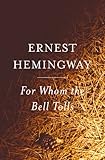

They existed only to serve the state. They were conceived in controlled Palaces of Mating. They died in the Home of the Useless. From cradle to grave, the crowd was one—the great WE.
In all that was left of humanity there was only one man who dared to think, seek, and love. He lived in the dark ages of the future. In a loveless world, he dared to love the woman of his choice. In an age that had lost all trace of science and civilization, he had the courage to seek and find knowledge. But these were not the crimes for which he would be hunted. He was marked for death because he had committed the unpardonable sin: He had stood forth from the mindless human herd. He was a man alone. He had rediscovered the lost and holy word—I.
“I worship individuals for their highest possibilities as individuals, and I loathe humanity, for its failure to live up to these possibilities.”—Ayn Rand



With the United States on the verge of civil war, Elijah Tully and his father ride out of Kansas as Jayhawkers, guerrilla fighters against slavery. After his father is killed, Lije goes undercover among the proslavery bushwhackers. Swept into a grisly raid, Lije unexpectedly stands face-to-face with his father's killer -- but is vengeance as simple as he once thought?


Facing annihilation at the hands of the warlike Vogons? Time for a cup of tea! Join the cosmically displaced Arthur Dent and his uncommon comrades in arms in their desperate search for a place to eat, as they hurtle across space powered by pure improbability.
Among Arthur’s motley shipmates are Ford Prefect, a longtime friend and expert contributor to The Hitchhiker’s Guide to the Galaxy; Zaphod Beeblebrox, the three-armed, two-headed ex-president of the galaxy; Tricia McMillan, a fellow Earth refugee who’s gone native (her name is Trillian now); and Marvin, the moody android. Their destination? The ultimate hot spot for an evening of apocalyptic entertainment and fine dining, where the food speaks for itself (literally).
“What’s such fun is how amusing the galaxy looks through Adams’s sardonically silly eyes.”—Detroit Free Press

The story of Robert Jordan, a young American in the International Brigades attached to an antifascist guerilla unit in the mountains of Spain, it tells of loyalty and courage, love and defeat, and the tragic death of an ideal. In his portrayal of Jordan's love for the beautiful Maria and his superb account of El Sordo's last stand, in his brilliant travesty of La Pasionaria and his unwillingness to believe in blind faith, Hemingway surpasses his achievement in The Sun Also Rises and A Farewell to Arms to create a work at once rare and beautiful, strong and brutal, compassionate, moving, and wise. "If the function of a writer is to reveal reality," Maxwell Perkins wrote Hemingway after reading the manuscript, "no one ever so completely performed it." Greater in power, broader in scope, and more intensely emotional than any of the author's previous works, it stands as one of the best war novels of all time.




Here Hemingway recasts, in strikingly contemporary style, the classic theme of courage in the face of defeat, of personal triumph won from loss. Written in 1952, this hugely successful novella confirmed his power and presence in the literary world and played a large part in his winning the 1954 Nobel Prize for Literature.

For more than seventy years, Penguin has been the leading publisher of classic literature in the English-speaking world. With more than 1,700 titles, Penguin Classics represents a global bookshelf of the best works throughout history and across genres and disciplines. Readers trust the series to provide authoritative texts enhanced by introductions and notes by distinguished scholars and contemporary authors, as well as up-to-date translations by award-winning translators.

Winner of the Scott O'Dell Award for Historical Fiction * ALA Best Book for Young Adults * ALA Notable Children's Book
In this brilliant fictional tour de force, which the New York Times called "a deft, poignant novel," Newbery Medal-winning author Paul Fleischman re-creates the first great battle of the Civil War from the points of view of sixteen participants.
Northern and Southern, male and female, white and black. Here are voices that tell of the dreams of glory, the grim reality, the hopes, horror, and folly of a nation discovering the true nature of war.

Rachel's first person, present tense narrative draws the reader into her experiences feeling the hurt and confusion. Vos acknowledges that the story of Rachel Herzog is her own. The girls intense fear of going outside after the German defeat, caused by their many years of living inside in fear of discovery, and the letters their family receive telling them of their relatives deaths in concentration camps add depth to the story.

